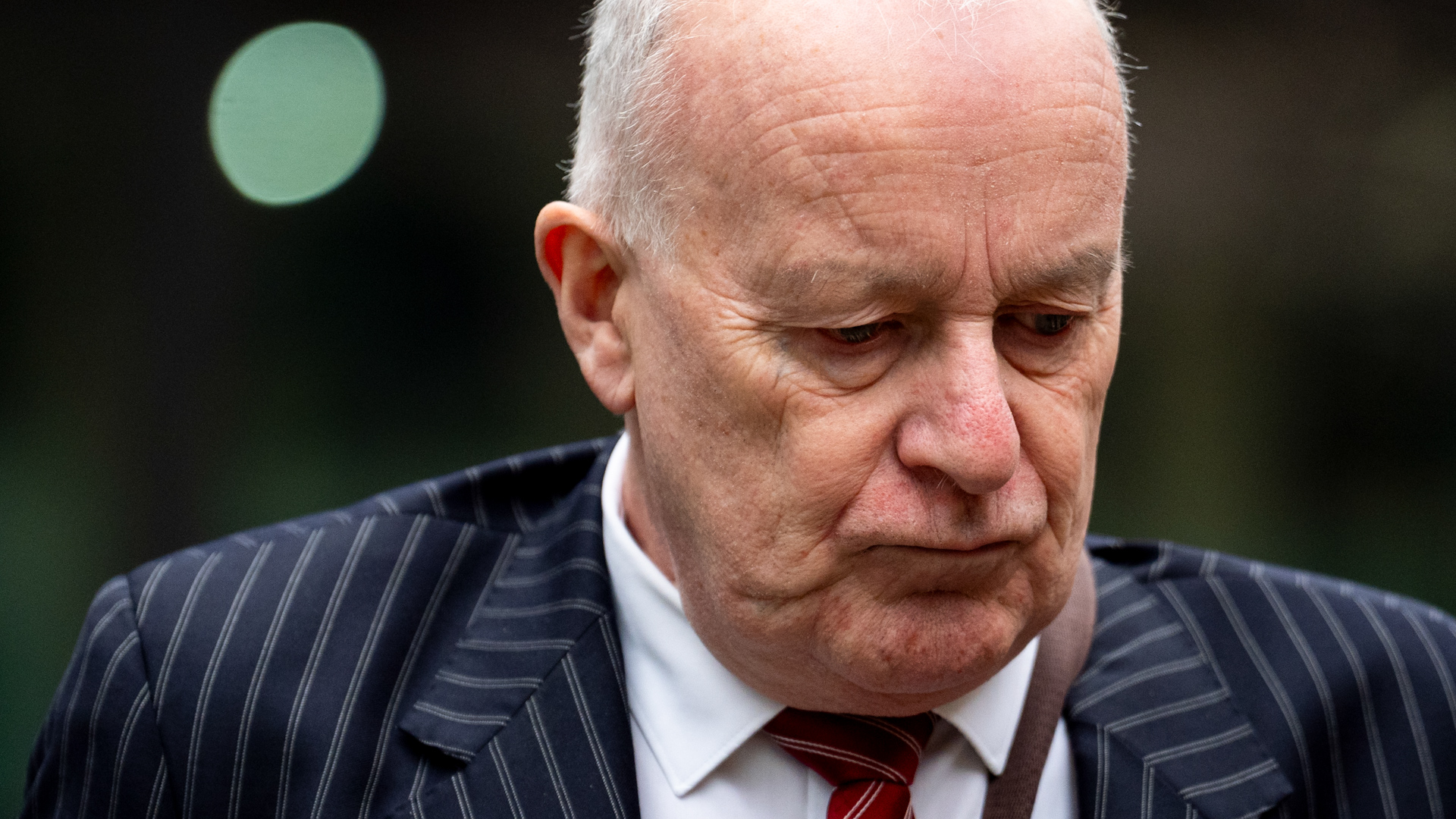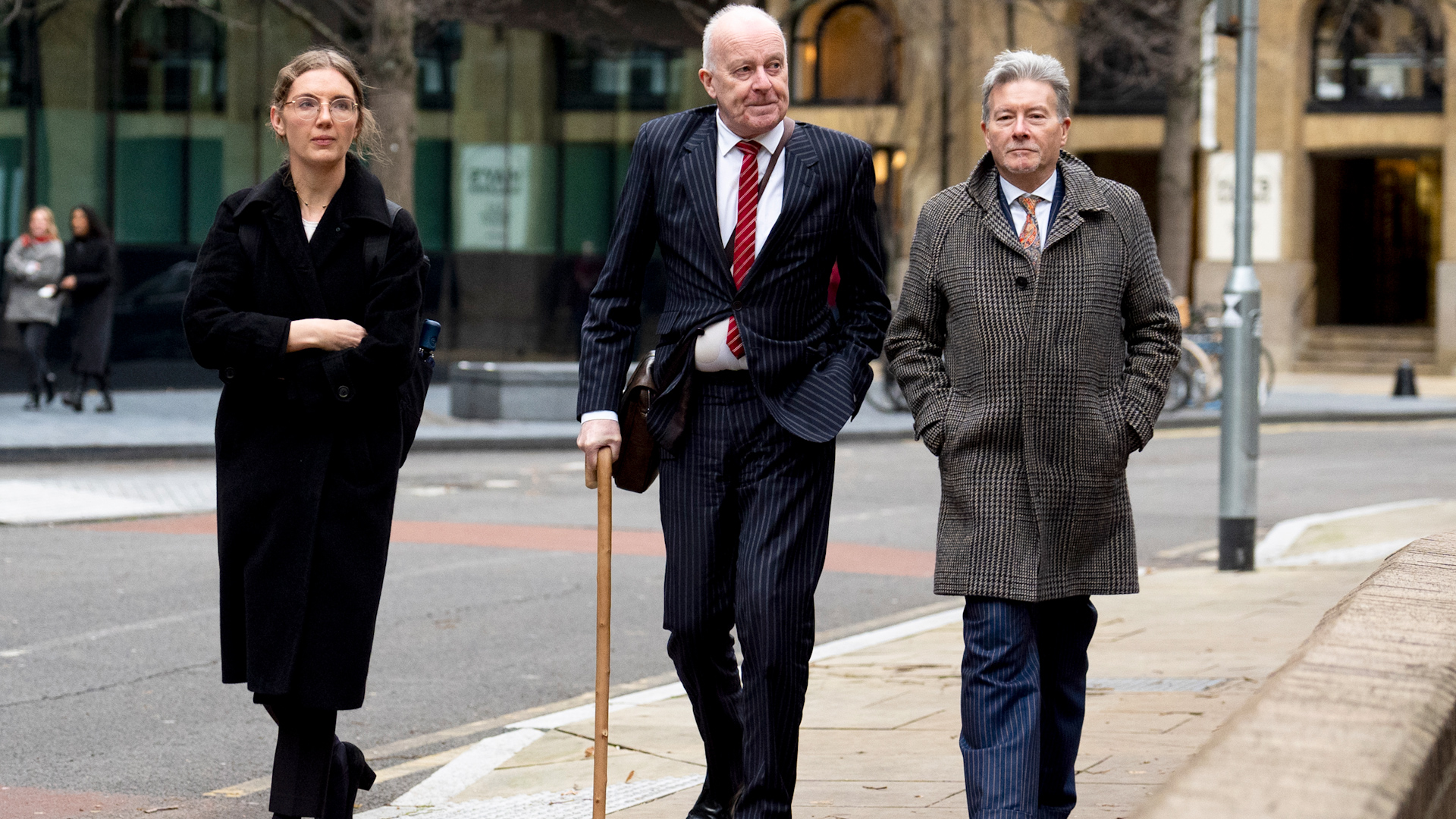
Former human rights lawyer Phil Shiner spared jail over Iraq War fraud charges

A former human rights lawyer has been spared jail over fraud charges linked to false abuse claims made against British troops in Iraq.
Phil Shiner was struck off as a solicitor in 2017 at a tribunal after being found guilty of misconduct and dishonesty relating to false claims against veterans of the Iraq War.
At Southwark Crown Court, the 67-year-old was handed a two-year jail sentence suspended for two years for three counts of fraud, after previously admitting that an agent acting on his behalf had been cold-calling potential clients in Iraq.
Judge Christopher Hehir said "although there was obvious dishonesty", he did not think the former lawyer was "motivated by personal greed".
Sentencing Shiner, who was the principal solicitor of the law firm Public Interest Lawyers, Judge Hehir said: "He got carried away with enthusiasm by his client's cause and his judgement suffered as a result."
Addressing Shiner, who had been made bankrupt, the judge said: "You have already suffered professional and personal ruin and I do not consider it necessary to add to that by sending you straight to prison."
He added: "You, better than most, will understand what a suspended sentence order means."
The judge said the offending had taken place "a very long time ago" and Shiner had "not reoffended since", adding that he had character references from "people of considerable distinction".

Richard Thomas KC, mitigating, said Shiner had "suffered professional ruin".
Shiner had made an application to the Legal Services Commission in 2007 in which he sought up to £200,000 of legal aid funding for his firm to represent clients including Khuder Al-Sweady, in an application for judicial review.
According to the National Crime Agency (NCA), he received around £3m in the value of the contract, and the ensuing Al-Sweady inquiry into allegations of mistreatment and unlawful killing of Iraqi nationals by British troops cost the taxpayer £24m.
The inquiry found that Mr Al-Sweady's nephew, Hamid Al-Sweady, had been killed "outright" while fighting, and had been a "willing and active" participant in an attack on British forces.
It concluded that the most serious claims of murder and torture were "entirely false" and the product of "deliberate lies".
During sentencing, the judge told the court: "The defendant isn't being sentenced for anything that happened at the Al-Sweady inquiry, nor can it be said the judicial proceedings of the Al-Sweady inquiry in any sense represent harm.
"They were part of a judicial process that in the end led to some very firm conclusions."
In making his application to the Legal Services Commission, Shiner failed to disclose that an agent acting on his behalf and with his knowledge had been cold-calling and making unsolicited approaches to potential clients in Iraq.
He also failed to disclose that he was paying referral fees, which is not permitted as part of gaining a legal aid contract.
Financial redress scheme
Armed forces solicitor Hilary Meredith-Beckham is calling for a financial redress scheme for Armed Forces veterans falsely accused of hideous war crimes in Iraq.
Hilary Meredith-Beckham, founder and chair of Hilary Meredith Solicitors, provided evidence to the Defence Select Committee on the Iraq historic abuse cases, which ultimately contributed to the closure of the Iraq Historic Allegations Team (IHAT), and is representing veterans falsely accessed of brutality and abuses against Iraqi civilians.
In light of Shiner's conviction, Mrs Meredith-Beckham is calling on the government to apologise to those falsely accused and put in place a financial redress scheme.
"As a result of Shiner's criminal conduct, thousands of British soldiers were falsely and maliciously accused of war crimes. He instigated a witch hunt based on deceit.
"The accusations against British troops were totally false, and Shiner illegally pocketed millions of pounds of taxpayers' money pursuing them."
She added: "The falsely accused have paid a huge price – shattered lives, broken marriages, ruined finances, stalled careers, poor mental and physical health.
"It is abundantly clear that the MOD breached the duty of care it owes to our service personnel and veterans.
"They owe a duty of care in law, under the military covenant, morally and ethically to stand by those who serve. Instead, they allowed IHAT to pursue innocent troops with false evidence of vile war crimes.
"It is now time for the current government to draw a line under this shameful episode, apologise and introduce a financial redress scheme.
"There is absolutely no need for this process to become mired in litigation with lawyers talking to lawyers and our brave servicemen and women forced to relive their worst nightmares in court. It is time for the government to do the right thing."
Brian Wood, the Military Cross-winning former soldier, is backing Hilary Meredith-Beckham's call for a financial redress scheme.
He said: "The allegations were absolutely horrific – unlawful killing, mutilation and mistreatment of prisoners of war. That just did not happen.
"Phil Shiner's criminal conduct has left a trail of devastation. Lives have been ruined. Innocent men and women have been driven to the brink of suicide.
"I fully support Hilary Meredith-Beckham's call for a financial redress scheme. Today, the legal system dealt with Phil Shiner. Now it needs to stand up for the men and woman whose lives he destroyed."
'Disgusted'
A former soldier said he was "pretty disgusted" by the decision to give Shiner a suspended sentence.
Robert Campbell, who was a major in the Royal Engineers, was accused of drowning Iraqi teenager Saeed Shabram in a river in Basra in May 2003 and was scrutinised in eight investigations, including one for possible manslaughter, before he was ultimately cleared.
Speaking outside court, Mr Campbell said: "The listing in court was a very benign documents case that didn't reflect the human element of what he has done in the slightest.
"Of course, he should have gone to jail. His poison has spread far beyond the Iraq War."
Sian Mitchell, a CPS specialist prosecutor, said Shiner "defrauded a statutory legal body for his own selfish motives".
Ms Mitchell added: "As a result of the deliberate failure to disclose his serious breaches of the rules governing legal aid and his professional code of conduct, Shiner was able to retain his highly lucrative legal aid contract and obtain taxpayer-funded legal aid payments."
The CPS has commenced confiscation proceedings to reclaim the proceeds of the fraud.









